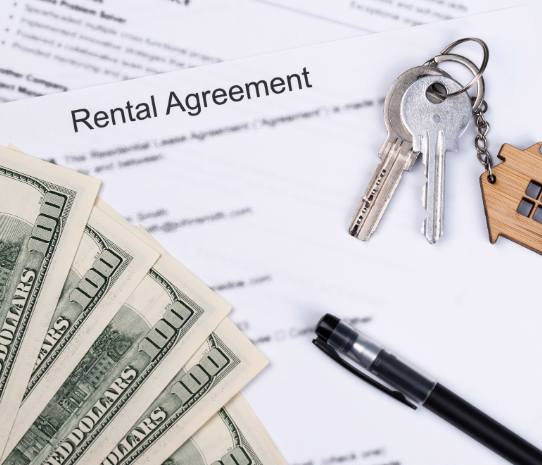Join CityClub
To Access Exclusive Off-Market Opportunities
What Does the Renters’ Rights Bill Entail?
The Renters’ Rights Bill is set to reshape the rental landscape, bringing in a series of reforms that will impact both landlords and tenants. These changes are designed to create a fairer, more secure rental market while raising standards across the board.
For landlords, understanding what’s coming is key to staying compliant and making the most of new opportunities. Here’s a closer look at the changes you can expect under the new legislation.

Abolishing Section 21 Evictions
As part of the Renters’ Rights Bill, Section 21, also known as ‘no fault evictions’, are set to be removed. Currently, Section 21 allows landlords to evict a tenant without giving a reason. The removal of this will provide tenants with extra security by preventing landlords ending tenancies with no valid reason.
Periodic Tenancies
Under the current system, tenants’ contracts are often fixed-term tenancies. These require them to commit to paying rent for a set period. With the introduction of periodic tenancies, renters will have the option to move out of a property at any time. Provided they give at least two months’ notice to the landlord.
Protection Against Unfair Rent Increases
In line with the Renters’ Rights Bill, private rented sector tenants will be able to challenge unreasonable rent increases. This will prevent landlords using rent increases as a backdoor means of eviction. In the Bill, landlords will be able to increase rents once per year to the market rate. They will still need to provide at least 2 months’ notice of it taking effect.

Fair Possession Grounds
The Renters’ Rights Bill will ensure possession grounds are fair for both tenants and landlords. This provides more security to tenants, whilst letting landlords recover their property when reasonable. It also allows tenants more time to find a new property if they are evicted for a fair reason.
Database for Private Rented Sector
There will be a Private Rented Sector Database to allow landlords to keep on top of legal obligations and demonstrate good practice. This will also provide better information to tenants so they are able to make more informed decisions when sighing any agreements. Landlords will be required to be registered on this to use certain possession grounds.
Strengthened Pet Rights
As part of the Renters’ Rights Bill, tenants will get a strengthened right to request pets in a property. Landlords must consider their request and will be unable to deny for anything unreasonable. Due to this, landlords will be able to demand pet insurance to cover any property damage as a result of having pets.

Decent Home Standards
The Decent Home Standards have been in place for social housing since 2002, and they are bringing this into the private rented sector as part of the Renters’ Rights Bill. The Decent Home Standards is a legislation to ensure living conditions for properties. It acts as a benchmark for minimum quality of properties.
Awaab’s Law
Awaab’s Law is another legislation concerning the minimum quality of a property. This law sets a clear timeframe of when a landlord must take action to ensure a property meets the Decent Home Standards. This is set to be introduced to the private rental sector, ensuring tenants are living in a safe environment.
No Rental Bidding
Rental bidding is when potential tenants offer rents above the advertised price to get the property. However, in the Renters’ Rights Bill, this will become illegal. Landlords and agents will not be allowed to accept any offers above the published asking rent, ensuring the tenants can’t outbid each other to secure the property.

Renters’ Rights Bill Impact on Landlords
The Renters’ Rights Bill has been introduced to strengthen protections for tenants and ensure fair treatment across the rental sector. For many landlords, this may initially sound like a challenge. In reality, however, the Renters’ Rights Bill does not target responsible landlords who already provide safe, well-maintained homes and treat tenants fairly. For these landlords, the legislation is far less of a burden and much more of an opportunity.
Good landlords stand to benefit in several ways. The Renters’ Rights Bill is aimed at tackling unfair practices, not penalising those who already manage their properties responsibly. Landlords who act with transparency, flexibility, and care are already operating in line with the spirit of the new rules. The added protections also give tenants greater confidence to rent, knowing that they will be treated fairly and have security in their housing. This confidence can translate into a stronger demand for rental properties, creating a wider pool of reliable tenants actively seeking quality homes.

A fairer, more secure rental market also encourages tenants to stay longer, reducing costly void periods and the hassle of frequent turnover. For landlords, this means more consistent rental income and a more stable investment environment. As demand grows, properties that are well-maintained and managed with care are likely to stand out in an increasingly competitive marketplace.
Ultimately, the Renters’ Rights Bill signals a shift toward a more professionalised rental sector. Landlords who embrace compliance and focus on tenant satisfaction will be well placed to succeed. By adapting early and demonstrating a tenant-first approach, property investors can build stronger, longer tenancies, attract high-quality tenants, and enjoy predictable cash flow. Rather than a setback, this legislation represents an opportunity for landlords to secure long-term stability and growth in a more confident and reliable rental market.

When will the Renters’ Rights Bill become law?
We anticipate it will officially come into action at the end of 2025/the start of 2026.
The process to introduce the Renters’ Rights Bill began on September 8th, when the Bill returned to the House of Commons after debate in the Lords earlier this year. The Bill may undergo further changes before final approval, which must be agreed to by both the House of Commons and the House of Lords.
What changes are being made with the Renters’ Rights Bill?
The removal of Section 21 evictions, the ability to challenge unreasonable rent increases, strengthened rights to request a pet in the property, discrimination will become illegal, end the practice of rental bidding, and the introduction of periodic tenancies are just some of the changes we can expect to see come from the Renters’ Rights Bill.
What is Section 21?
A Section 21 is a legal notice that landlords in England can use to begin the process of ending a tenancy. Often referred to as a “no-fault” eviction, it allows landlords to seek possession of their property without having to give a specific reason.
Serving a Section 21 notice does not mean the tenant must leave straight away. It simply starts the clock on a notice period. If the tenant remains in the property once that period has passed, the landlord must apply to the court for a possession order before eviction can take place.
What is the new Renters' Rights Bill 2025?
In short, the Renters’ Rights Bill is a new legislation looking to become law in late 2025/early 2026. It is set to reshape the rental landscape, bringing in a series of reforms that will impact both landlords and tenants. These changes are designed to create a fairer, more secure rental market while raising standards across the board.
How does the Renters’ Right Bill impact landlords?
In short, the Renters’ Rights Bill is designed to protect tenants from unfair treatment. But it does not target responsible landlords who act fairly. Flexible and understanding Landlords who provide quality homes are less likely to be affected by the new legislation. These landlords will still be able to manage their properties effectively and maintain strong, long-term tenancies. With the enhanced protections for tenants, more tenants will be willing to enter the rental market, knowing that they have greater rights and security. This will likely result in higher tenant demand.
Explore our Investment Guides
Take a look
As Seen In
Join CityClub Today to Receive:
- Priority access to exclusive off market investments
- Below market value pricing
- Out of hours investor support chat
- Allocated solicitor for hands free conveyancing

















